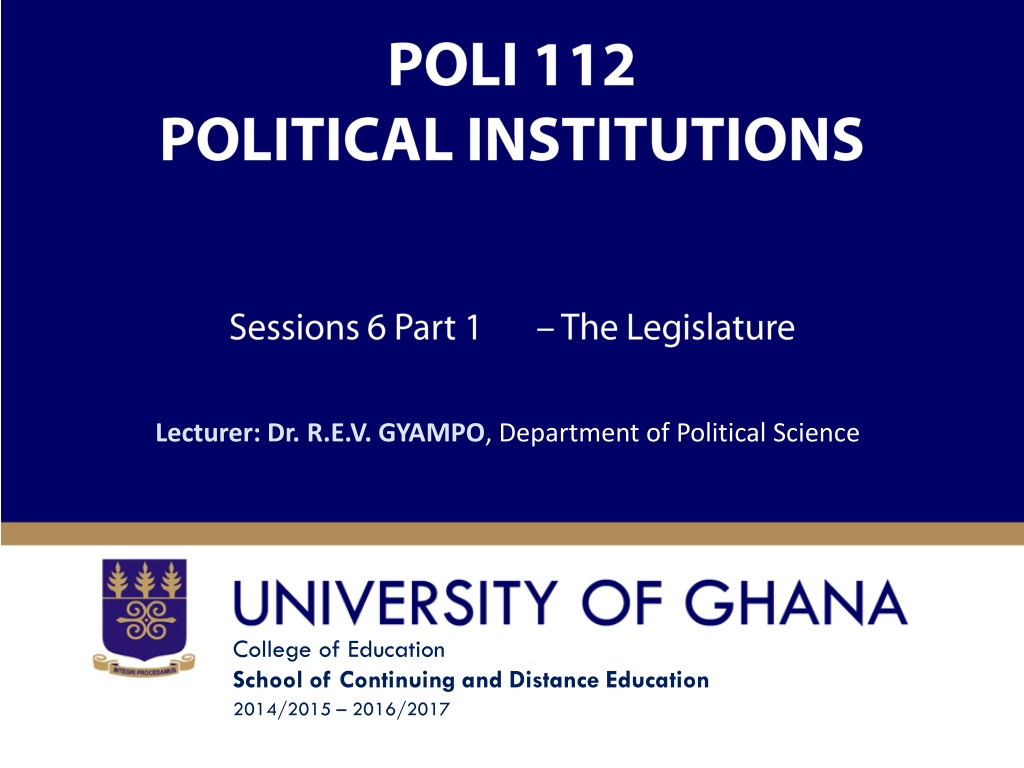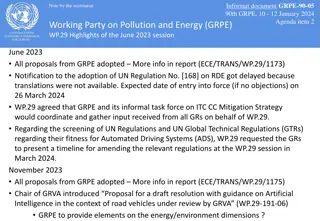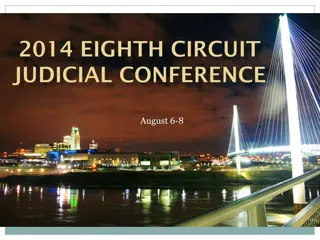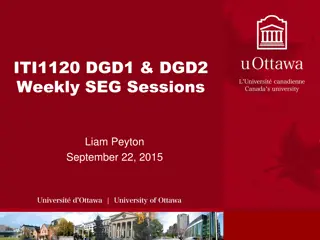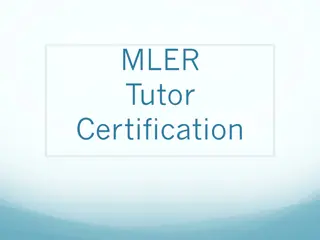Understanding Legislatures: Types, Functions, and Processes
Explore the structure and functions of legislatures, including the types such as unicameral and bicameral, unitary and federal legislatures, and the key functions like representation, legislation, financial control, and policy formulation. Delve into the law-making process and the role of parliament in governance.
Download Presentation

Please find below an Image/Link to download the presentation.
The content on the website is provided AS IS for your information and personal use only. It may not be sold, licensed, or shared on other websites without obtaining consent from the author. Download presentation by click this link. If you encounter any issues during the download, it is possible that the publisher has removed the file from their server.
E N D
Presentation Transcript
Lecturer: Dr. R.E.V. GYAMPO, Department of Political Science College of Education School of Continuing and Distance Education 2014/2015 2016/2017
Defining the Legislature This is the rule-making arm of government. It goes by different names in different countries. Ghana, UK -Parliament Germany-Bundestag Israel -Knesset US- Congress Russia-Cremlin Slide 2 Dr. R.E.V. GYAMPO, Dept of Political Science, UG
Types of Legislature There are two main types of the legislature The Unicameral and Bicameral Legislature. A Third but not too popular type however exist in South Africa called the Tricameral Legislature A Unicameral Legislature is a one-chamber parliament while a Bicameral legislature has two Houses, the Lower House made of mostly elected representatives and the Upper House comprising essentially interest groups and other seasoned statesmen who cannot subject themselves to the strains of electioneering campaign. Slide 3 Dr. R.E.V. GYAMPO Dept of Political Science, UG
Unitary and Federal Legislatures In terms of functions, there are two types of legislature. These are unitary and federal. There is also a third, Confederal, which is now very rare in the modern world. A unitary legislature (eg Ghana) is one which is the only supreme law making body in the state and does not share this function with any lesser legislature. A federal legislature on the other hand is one which though supreme, shares its legislative function with other lesser legislatures which legislate for the federating units. Slide 4 Dr. R.E.V. GYAMPO Dept of Political Science, UG
Functions of the Legislature Representation This is the foremost and the basis of legitimacy of the legislature. The second function of the legislature is legislation or law making. The third function of the legislature is to control the expenditure or finances of the state The fourth key function of the legislature is to control the formulation of policies Slide 5 Dr. R.E.V. GYAMPO Dept of Political Science, UG
The Ghana Parliament House Slide 6 Dr. R.E.V. GYAMPO Dept of Political Science, UG
The Law Making Process A bill simply refers to a proposed law yet to be passed by parliament and assented to or approved by the President Before a bill becomes a law it goes through some processes or stages. In all it must pass through six stages. First Stage This is the drafting or the drawing up of the bill stage. Second Stage A copy of the drafted bill is given to the clerk of parliament who reads for the first time, the title of the bill and states its nature and purpose Slide 7 Dr. R.E.V. GYAMPO Dept of Political Science, UG
The Law Making Process (Cont) Third Stage The Second Reading is the most vital stage in the process of legislation. It is at this stage that members who oppose the bill would bring out their objections and either call for the amendment of certain portions or its total rejection. Fourth Stage After the second reading, the bill is referred to the appropriate committee. At this committee stage, members of the public interested in the bill may go before the committee with their views. Slide 8 Dr. R.E.V. GYAMPO Dept of Political Science, UG
The Law Making Process (Cont) Fifth Stage After the Committee have submitted its report the bill is then read for the third time. A final debate on the bill by Parliamentarians goes on and some verbal amendments may be made Final Stage The final stage of the bill is the Presidential Assent. In the Parliamentary system of government, the appendage of signature to the bill by the monarch is a mere formality. In the Presidential system however, this is a substantive function as the President can decide to veto the bill. In this case, all the concerns raised by the President would have to be addressed before he signs the bill Slide 9 Dr. R.E.V. GYAMPO Dept of Political Science, UG
Problems of the Legislature Excessive partisanship characterizing parliamentary deliberations Virtually all laws emanate from the executive because of the latter s access to expertise and technical support in the area of legislation The practice of delegated legislation without much supervision Slide 10 Dr. R.E.V. GYAMPO Dept of Political Science, UG
Problems of the Legislature (Cont) The power of Judicial Review that can be employed by the Courts to declare laws passed by the Legislature as unconstitutional and be set aside. Parliamentary deliberations can be suspended in times of emergency All bills from Parliament require Presidential Assent and in Presidential system, the Executive can veto a bill passed by the Legislature Slide 11 Dr. R.E.V. GYAMPO Dept of Political Science, UG
Reading List Refer to Unit 3, pp. 43-48 of Poli 112 (Political Institutions) Modules Gyampo, R.E.V. The state of Political Institutions in Ghana, (Saarbrucken, Germany: Lambert Academic Publishing Inc. 2012) pp. 31-62 Slide 12 Dr. R.E.V. GYAMPO Dept of Political Science, UG
Potential Role of Chiefs in Modern Times Cont d Increasing access to productive assets of the rural people such as land, capital etc Encouraging popular participation in the development process Increasing the political, social and cultural choices of the people Making efforts to control population Growth Enhancing the health and nutritional status of their people Taking the initiative to control environmental degradation Paying particular attention to the problems of women in the rural areas. Slide 13 Dr. Richard Boateng, UGBS
Concluding Remark THANK YOU Slide 14 Dr. R.E.V. GYAMPO Dept of Political Science, UG
